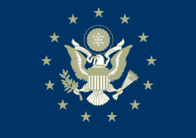CIAO DATE: 12/07
Direct Talks Lead to Progress on the North Korean Nuclear Front
Donald P. Gregg
Full Text
The Bush administration seems positioned to score a major foreign policy success in its dealings with North Korea. After two days of one-on-one talks in Geneva, both Assistant Secretary of State for East Asian and Pacific Affairs Christopher Hill and Vice Minister Kim Kye-gwan, the chief North Korean negotiator, issued up-beat statements indicating that an agreement has been reached that will end all North Korean nuclear activities in the near future. Mr. Hill spoke of North Korea’s agreement to “account for and disable” all its nuclear programs by the end of 2007. Although he gave no date for its completion, Minister Kim cited Pyongyang’s willingness to “declare and dismantle” its nuclear programs. Speaking to reporters on August 31, President Bush referred to “unfinished business” with North Korea as “finishing,” and spoke hopefully about the elimination of all North Korean nuclear programs by the time he leaves office. “We’re making progress,” the President said.
Many observers attribute this apparent success to a major change on the part of North Korea. In fact, the change has taken place within the Bush administration itself. During his first term, President Bush took a hard and abrasive line toward North Korea, referring to it as part of an “evil empire,” using disrespectful terms to refer to North Korea’s leader, Kim Jong Il, and refusing to let Chris Hill’s predecessor, Jim Kelly, talk bilaterally with Kim Kye-gwan. The balance of power within the Bush administration favored neoconservative hardliners in Vice President Cheney’s office, close advisors to Secretary of Defense Donald Rumsfeld, and senior officials within the National Security Council staff and the Department of State.
Jim Kelly suffered the consequences of the policy imbalance, and was frequently sent to meetings with his North Korean counterparts hamstrung by hard-line instructions guaranteeing that no diplomatic progress would be made. Regime change, not diplomacy, was the name of the game.
North Korea’s response to these tactics was to proceed with the development of nuclear weapons. These efforts led to an accumulation of considerable amounts of weapons-grade enriched plutonium and then culminated with the detonation of a nuclear device last October.
What accounts for this marked change of policy? First and foremost is the attitude of the President himself. He spotted the talents of Chris Hill when he was serving as Ambassador to Poland, and shifted him first to Seoul as Ambassador, and then to his current position. He was prepared to listen to Mr. Hill, whereas he had been indifferent to Jim Kelly’s commendable efforts. Thoughts of his legacy also may have entered the President’s thinking, and as the difficulties of dealing with Iraq grew more burdensome, the recognition of the possibilities of a diplomatic coup in Korea could well have become more compelling.
The role played by Condoleezza Rice also has been significant in this sea change of policy. The shift from National Security Advisor to Secretary of State led to significant changes in perspective. Secretary Rice has given strong support to Chris Hill, and the departure from government of people such as John Bolton and Robert Joseph, both intractable opponents of direct talks with North Korea, is clear evidence of the strength and influence of the Rice-Hill relationship.
Chris Hill himself has contributed to this positive change. His previous role in negotiating the Dayton Peace Accords on Bosnia showed him both the necessity and value of negotiating with such people as the late Slobodan Milosevic. Mr. Hill has consistently pressed for bilateral meetings with his North Korean counterparts, and Secretary Rice’s approval of his secret meeting with Kim Kye-gwan in Berlin last winter laid much of the foundation for the current breakthrough.
Neoconservative opponents of negotiating with Pyongyang continue to fire editorial pot-shots at the current process. Their contention is that the United States has been hood-winked by talented but unscrupulous North Korean diplomats, and that Pyongyang has no intention of giving up its nuclear weapons.
They are wrong in taking this position, just as they were wrong to block the start of diplomatic negotiations with North Korea during the first term of President Bush that could have prevented North Korea from becoming a nuclear power.
During four visits to Pyongyang, between 2002 and 2005, I had over 20 hours of discussions with Kim Kye-gwan and other senior North Korean officials. I heard persuasive arguments from them that North Korea’s development of nuclear weapons was intended to deter an American attack upon them, and that their long-term goals were to bring about a formal end of the Korean War and to establish a stable and friendly relationship with the United States.
On March, 5, 2007, Kim Kye-gwan and six of his associates met in New York at The Korea Society with former Secretaries of State Henry Kissinger and Madeleine Albright, and several other senior American foreign policy experts including serving Bush administration officials. The central topic of the three-hour meeting was the establishment of a strategic relationship between North Korea and the United States. The key North Korean assertion was that they would give up all nuclear weapons programs if they became convinced that the United States had no intention of attacking them and were willing to establish full diplomatic relations. The Americans who were present took the position that the key to an improvement in relations would be convincing evidence of North Korea’s willingness to give up all nuclear weapons programs and aspirations. All who attended that meeting left with high hopes of seeing a nuclear-free Korean Peninsula emerge in the near future.
Progress made since that meeting last March has validated those hopes, and the Bush administration deserves credit for what it has accomplished so far. All this could have been achieved six years ago, but better late than never.
